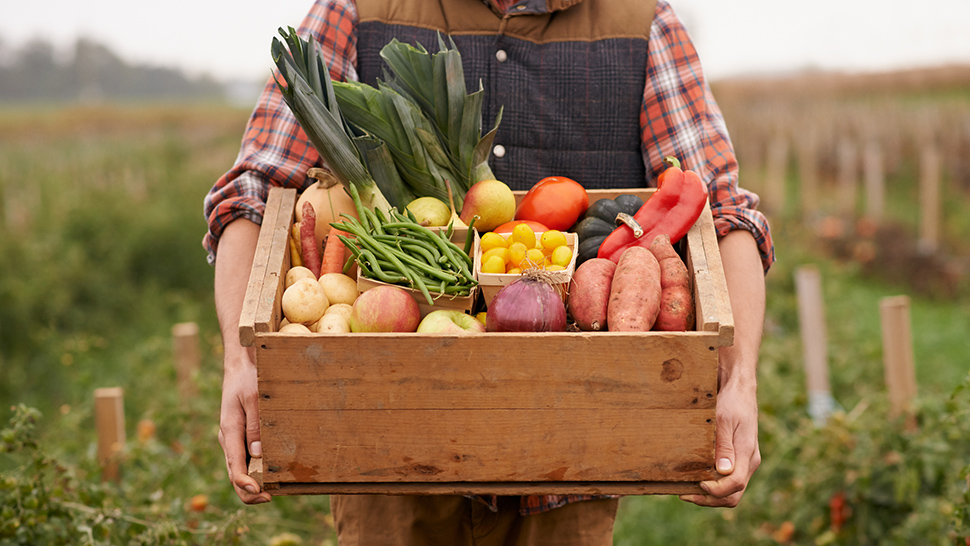
Local and seasonal cooking has been popular for quite some time — and it’s one routine that we can get behind! Just as many of us look forward to swapping our winter clothes for shorts and t-shirts in the spring, the change of seasons brings a lot of excitement for our taste buds. With the explosion of farmers’ markets around the country and the emphasis on local produce at the grocery store, eating seasonally is much more achievable than it used to be and offers a wide variety of benefits to both you and your community. Not quite sold? Here are five really good reasons to eat seasonally:
- It’s a party in your mouth! From the taste of a perfectly ripe summer peach to a crisp fall apple or a hearty winter squash, eating seasonally brings the best flavors to the table. When eaten out of season, produce just doesn’t taste as good. If you’ve had a lackluster strawberry or tomato in December, you know what we’re talking about.
- Cooking can be simple. With so much flavor to offer, seasonal produce needs little help to taste great. Instead, you can let the produce steal the show. A simple seasoning of olive oil, salt, and pepper (and maybe a few herbs) is all you need when produce is mega-fresh.
- It’s packed with nutrients. Produce picked at its peak ripeness and consumed soon after harvest offers the most vitamins, minerals, and phytonutrients. When you’re eating seasonally, you’re most likely eating regionally as well, which means that the produce doesn’t have to travel a long distance and nutrients are still at their peak.
- Variety is the spice of life. Broccoli is great but not day in and day out. By eating seasonally you’re guaranteed to get a variety of flavors, textures, and nutrients in your diet. Diversity among crops is also good for the environment.
- It’s budget-friendly. In-season produce costs less because it’s available in greater abundance during its peak growing season. If you buy from your local farmer, you’re also supporting the local economy.
While this is an easy task in most parts of the country from late spring through early fall, we know eating seasonally can be more challenging during the winter months — but it’s not impossible! Follow this seasonal produce guide and search by your state. One way to extend the warmer seasons and brighten up your plate in the dead of winter is to preserve your food either by canning your produce or freezing it. Your wallet (and your taste buds) will thank you when off-season options are more limited.